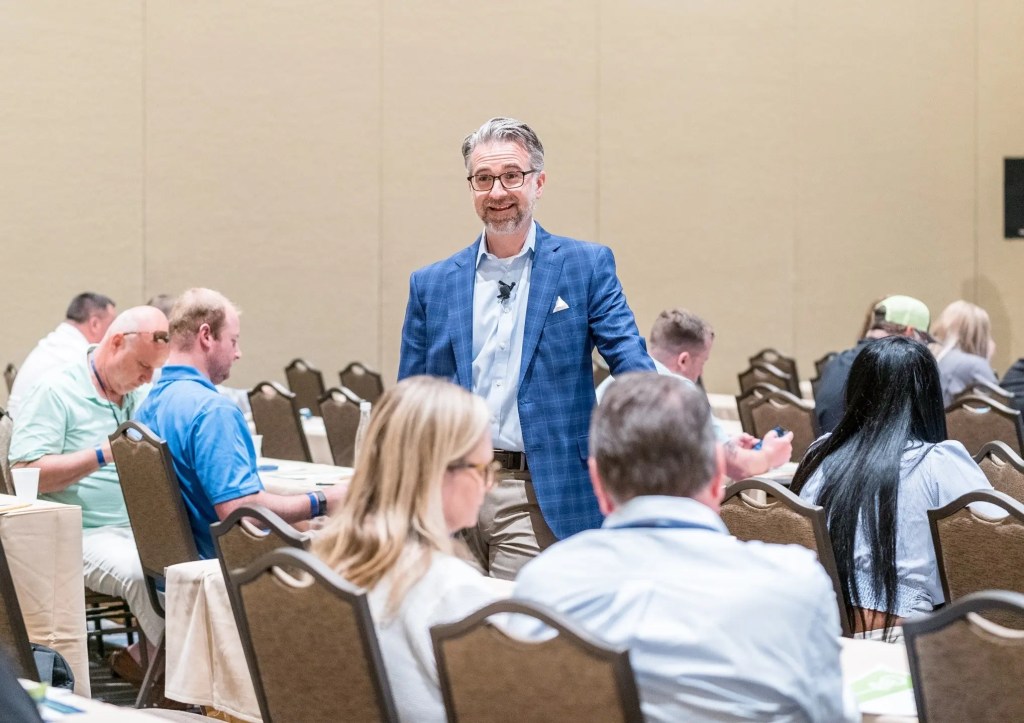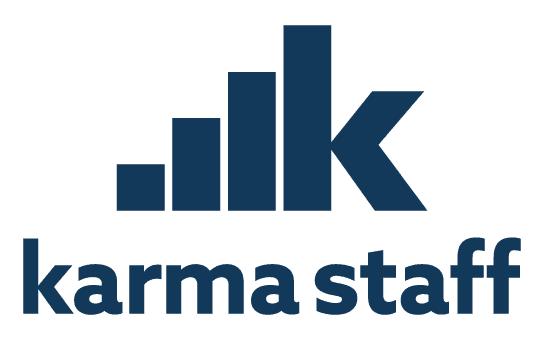Just as legendary coaches like Phil Jackson and Bill Belichick have driven their teams to championships through rigorous accountability and strategic guidance, the restoration industry demands similar leadership to navigate its high-stakes challenges. Scott Miller, a seasoned expert and founder of The Growth League, understands this parallel deeply.
In this week’s Restoration Roundtable, we sat down with Scott Miller and spoke to him about how he has been able to help out those in the Restoration industry. In this industry, crisis management and immediate response are daily norms, so establishing a culture of accountability not only enhances efficiency but also builds trust with clients. Drawing from his extensive experience, Scott shares how principles used in coaching elite athletes can be applied to cultivate a culture of accountability in restoration, leading to business success and growth.

Scott’s Keys to Success:
- Build Trust Through Micro-Commitments: Make and keep small promises to build credibility.
- Ask for What You Need: Communicate clearly to ensure expectations are met.
- Implement Systems: Develop clear, documented processes that everyone understands. This helps in delegating tasks effectively, freeing up the owner to focus on business growth.
- Regular Check-ins: Conduct frequent reviews to ensure everyone is on track and accountable. Discuss LBNT!
- Leadership by Example: Leaders should demonstrate accountability in their actions.
- Use Coaching Effectively: Like top sports coaches, business coaches can guide strategy and maintain accountability.
The Importance of Coaching in Restoration
Coaching in the restoration industry is an essential part of making sure that every employee, starting from technicians to management, fully understands and carries out their duties. Scott emphasizes how important coaching is for fostering responsibility, mentioning that it is necessary to have somebody who frequently checks whether they have accomplished what they previously agreed to by asking ‘Did you do what you said you were going to do?’ This method helps maintain a culture of reliability and trust as well as strengthening the commitment towards high performance across all levels of an organization. This sense of personal accountability helped Scott navigate his journey from a newcomer in the industry to the rookie of the year to a successful business owner and business coach.
Scott himself had a business coach right after opening his restoration company and it was not only someone that would hold him accountable but also was someone who could be a “thinking partner”. He describes the unique position of restoration business owners: “…nobody else really gets it and they don’t necessarily want to talk about challenges especially if their spouse is not involved in the business. They don’t want to take that home and talk with their spouse about it because it, you know it typically just upsets the spouse and they don’t really have any experience to help anyway, right.”
Build Trust Through Micro-Commitments
Making and keeping small promises can significantly build trust and show reliability.
Trust is the cornerstone of any service-oriented business, especially in a sector like property restoration, where clients are often vulnerable. Scott describes his approach to building trust, “It’s all about trust, right? Because if that agent or property manager…they’ve got to trust you. They’re putting a lot of trust in you.”
Scott highlights the use of “micro-commitments” as a practical method for building trust. These are small, manageable actions that demonstrate reliability, such as following up on a promise with tangible actions. For instance, sending a follow-up email exactly when promised reinforces reliability, showing potential and current clients that your business stands by its word.
Ask for What You Need
Clearly communicating needs and desires to both clients and team members ensures that expectations are understood and met.
Scott highlights the critical importance of forthrightness in communication within the restoration industry. He advises, “The other thing is not being afraid to ask. Be very clear that you want their business… you want to help them by making them look great.” He notes a common pitfall: “So many times… sales reps get very comfortable with their prospects.” Scott warns against allowing business meetings to drift into social interactions: “A lot of times the sales call is just a visiting session. It’s, you know, what’d you do last weekend? What are you doing this weekend?” He underscores the need to maintain a business focus, “But if you don’t remind them and don’t explicitly ask for that next opportunity, a lot of times it doesn’t happen.” This approach ensures that both clients and team members understand and meet expectations, fostering a professional environment focused on growth and service excellence.
Implement Systems
Streamline operations to improve accountability, efficiency, and delegation
One of Scott’s key strategies is systematizing operations to ensure consistency, which in turn, reinforces accountability. He shares, “We’re in the restoration industry, so it’s always going to be a little chaotic, but there’s a lot that you can do to become more profitable and less chaotic.”
Scott’s approach involves creating clear systems and processes that team members can follow. This not only simplifies their tasks but also provides a clear framework within which they can operate effectively and be held accountable. Systems also provide a backbone for training and development, making it easier to onboard new team members and ensure they understand what’s expected from the start.
Regular Check-ins
Systematic review methods like LBNT enhance team alignment and foster continuous improvement.
Scott Miller pioneered the term “LBNT” approach—short for “Liked Best, Next Time.” This strategy involves systematic debriefs after significant projects, where teams reflect on what they executed well and identify opportunities for improvement. Miller recommends that restoration company owners spend 30 to 60 minutes in these sessions, emphasizing the dual benefits of boosting morale and increasing operational efficiency. This practice not only keeps teams aligned and accountable but also cultivates an environment of continuous improvement, critical for maintaining high standards in a competitive field.
Leadership by Example:
Leaders should demonstrate accountability in their actions.
Scott Miller exemplifies leadership by dedicating himself to daily personal development, a practice underpinned by his commitment to reading a page from the Maxwell Daily Reader each day. This routine not only reinforces his accountability but also ensures he continuously cultivates the leadership qualities necessary to guide his team effectively. By incorporating these insights into his daily leadership approach, Scott sets a powerful example for his team, demonstrating the importance of consistent self-improvement and responsibility.
Use Coaching Effectively
Coaching can turn potential into excellence
Great coaching transforms potential into excellence, as seen in sports. Phil Jackson and Michael Jordan’s Bulls teams, and Tom Brady on the Patriots, and these days Andy Reid and Patrick Mahomes in Kansas City illustrate how leadership can foster historic levels of success. Similarly, in the restoration industry, Scott Miller uses coaching to cultivate a culture of accountability, guiding business owners to refine their strategies and enhance operational efficiency.
Scott Miller offers a variety of coaching services to help restoration professionals achieve their full potential:
- Restoration Sales Academy (R Andy Reid and Patrick Mahomes SA): Weekly group sessions for sales representatives and business owners, focusing on building effective prospect lists, optimizing selling time, and developing strong referral networks.
- Restoration Profit Academy (RPA): Designed for business owners, this program aims to enhance profitability through improved financial management and operational efficiencies.
- One-to-One Coaching: Personalized sessions that address specific business challenges and opportunities, offering detailed strategies for operational improvement and preparation for business succession or sale.
As someone who has gone through Scott’s training programs, I couldn’t recommend The Growth League enough for Restoration owners, managers, or anybody in sales.
Conclusion
For restoration businesses, where rapid response and high-quality service are essential, a culture of accountability can be the difference between success and failure. By implementing clear systems, encouraging open communication, and fostering trust, businesses can thrive in challenging environments. Scott Miller’s journey and strategies provide a robust blueprint for any business leader aiming to enhance accountability in their operations.
For those interested in learning more about Scott’s methods or seeking guidance on fostering accountability in their restoration businesses, connecting with him through Growth League could be a transformative step.






